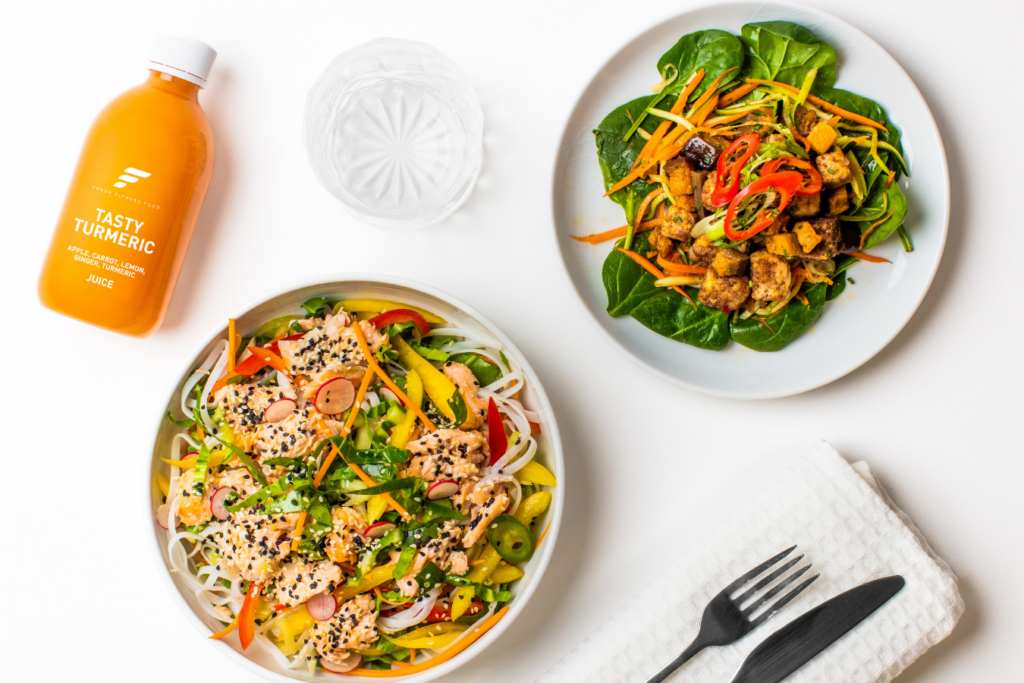Why Protein is Important for a Healthy Meal

Protein is a vital component of our diet. As a result, it should be given careful consideration when it comes to planning your overall dietary intake and the meals you have each day.
Why is it said to be an important component of a healthy, balanced meal? There’s a lot of information out there and it can be hard to know what to believe and how to sift through it. As a result, we’re here to give you the lowdown on this topic!
What is protein and what is it needed for?
Protein is one of three macronutrients required by the body. Macronutrients are the nutrients we need in larger quantities that provide us with energy.
Proteins are primarily functional and structural components within each cell of the body and are required for growth and repair, as well as the maintenance of optimal health.
Other functions include important roles in:
- Building and repairing of tissue
- Hormone and enzyme production
- Skin, hair, and bone health
Protein is made up of essential and non-essential amino acids, which are the building blocks of your muscles. Essential amino acids are those which cannot be synthesised by the body and therefore must be obtained from food. In their absence, it would be impossible to build, repair or maintain muscle mass.
Essential amino acids are commonly sourced from animal products. Since they contain all the amino acids we require, we call them ‘complete proteins’.
On the other hand, plant-based sources of protein contain different amounts and combinations of amino acids but do not often contain the full spectrum of essential amino acids we require. We call them ‘incomplete proteins’.
This does not mean that we can’t obtain all the protein we need from plant-based sources, but we must do so through clever combinations of different foods. For example, combining peanut butter and wholemeal toast or rice and beans will provide all 9 essential amino acids.
There are also several complete sources of plant-based protein, such as quinoa, tofu and tempeh.
What are the benefits of protein?
Protein has a wealth of benefits, including:
- Helps to build, repair or maintain muscle mass – when paired with resistance training, this can help build strength.
- Helps to keep you satiated (feeling full) – this is especially important when in a deficit/ aiming to lose weight.
- Can be beneficial for bone health – this is particularly relevant when ageing, as it can lead to a lower risk of osteoporosis and fractures.
Where does protein come from in our diets?
Eating good quality protein is a great starting point for a healthy diet. As noted, we can obtain protein in our diet from both animal and plant-based sources.
Animal-based sources include:
- Poultry – e.g. chicken and turkey
- Red meat – e.g. pork, lamb and beef
- Fish – e.g. white fish, salmon and shellfish
- Eggs
- Dairy
Plant-based sources such as:
- Beans
- Lentils
- Chickpeas
- Soy products e.g. tofu and tempeh
Basing your meals around a mixture of the above, depending on your individual requirements and dietary preferences, is really important, due to the wealth of benefits protein has.
To conclude, I hope we’ve provided you with all the information you need to understand why protein is key for your diet and overall health. Not only is it nutritious, it is of course a tasty part of any meal and can also be incorporated into your snacks too! If you’re stuck for inspiration when it comes to jazzing up your protein intake, take a look at our bank of delicious recipes here.
- The Comfort of Tradition: Why We Crave Holiday Foods - December 23, 2024
- Is There a Place for Ultra-Processed Foods in Your Diet? - November 29, 2024
- Tempeh and Quinoa Power Bowl Recipe - November 7, 2024